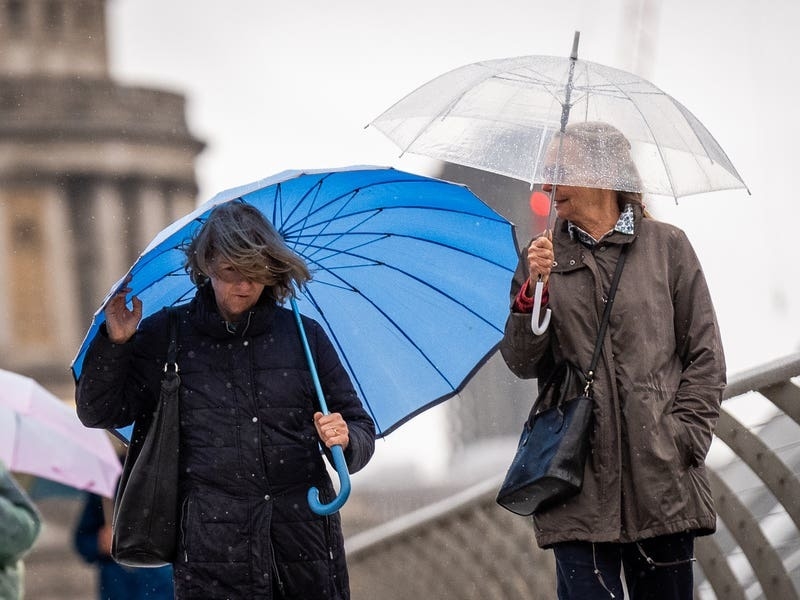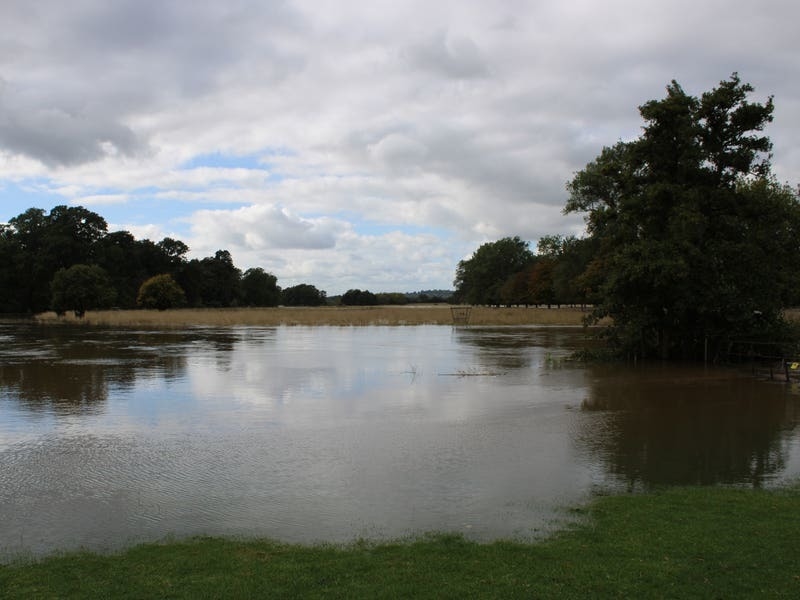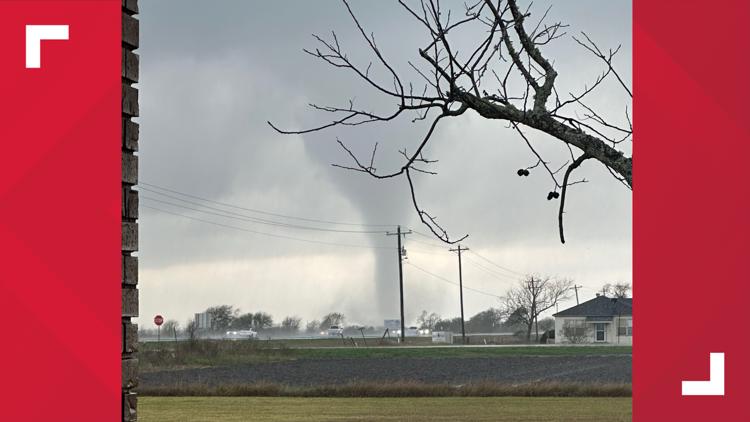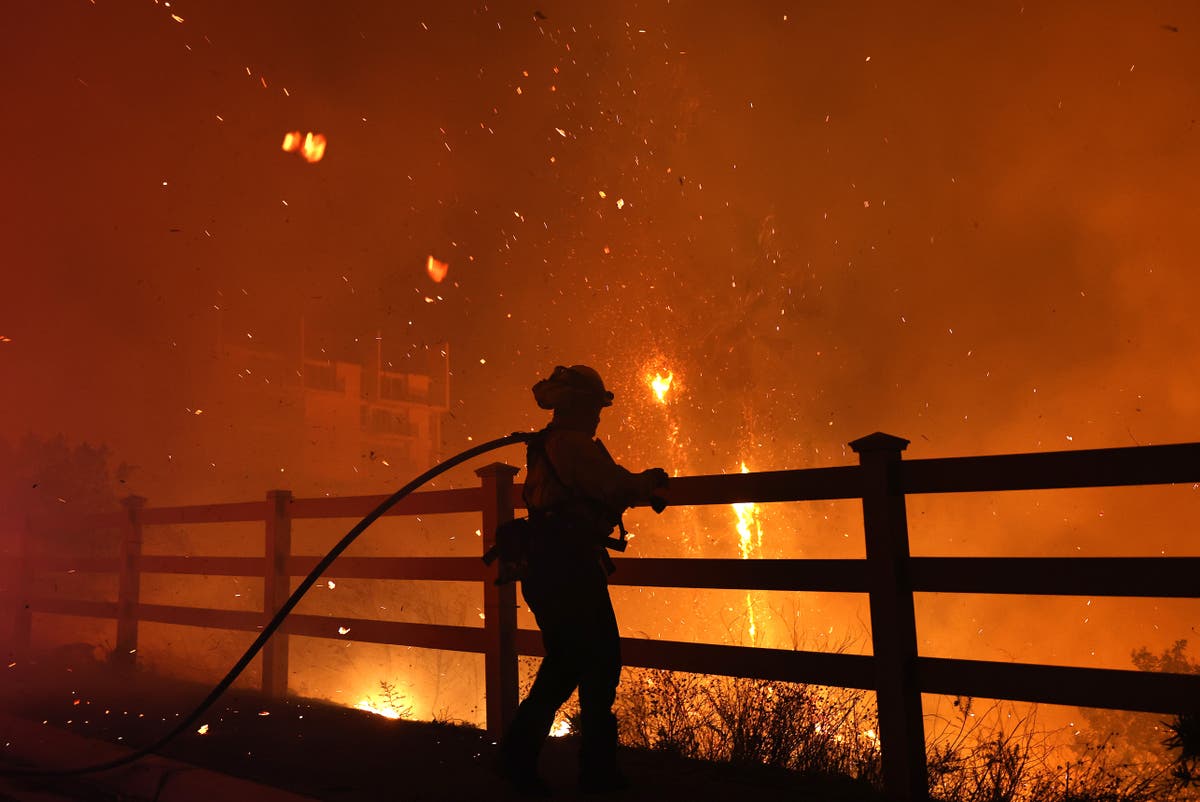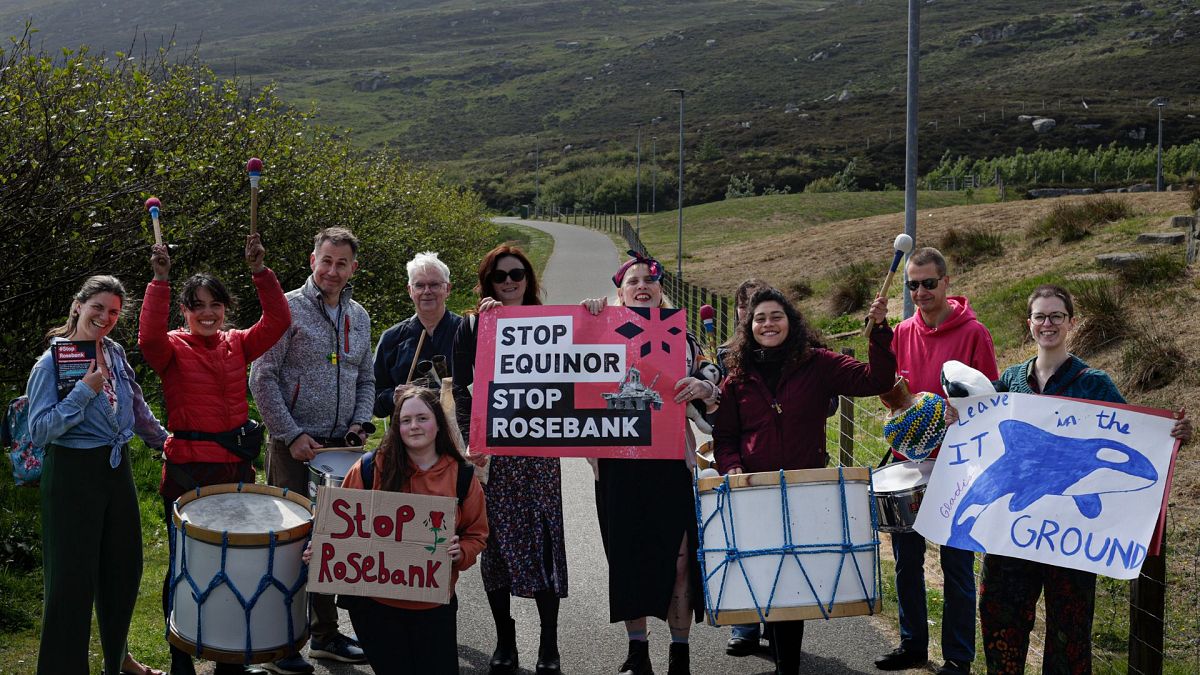
What do Shetlanders feel about Rosebank, the UK's biggest untapped oil and gas field, being on their doorstep? The vast Rosebank oil and gas field, just off the Shetland Isles in Scotland, is rife with controversy. On one side, the company behind the planned exploration says it will provide Britain with both job and energy security, with lower carbon emissions than most oilfields. On the other hand, local climate campaigners question how many jobs it will really create for local people as well as concerns about its impact on the marine environment.
If it goes ahead, Rosebank will be the UK’s biggest oilfield and one of the largest in Europe. “My main worry is all the CO2 emissions that will come from the oil field,” says Andrea Sánchez, an activist from the Shetland isle of Bressay. “Burning that oil would be the equivalent of 28 [lowest income] countries emitting carbon in just one year, which is huge.

We’re in a climate emergency. If we don’t stop drilling from the ground, we are not going to manage to have a liveable planet”. Rosebank’s discovery well was first drilled in 2004 by the petroleum refinery company Chevron.
They decided not to go any further due to the scale of the investment required. The well contains a total of nearly 500 million barrels of oil equivalent. Fast forward 19 years, and Equinor, the Norwegian state-owned energy giant that primarily deals in oil, acquired 80 per cent of in March 2023, with the remaining owned by the Israeli oil and gas company Ithaca Energy.
British oil and gas company is also involved in Rosebank due to a planned joint venture with Equinor to be the UK North Sea’s biggest independent producer. It was only last year - in September 2023 - that the UK government gave the green light to Rosebank. Now, the new Labour government admitted in court last month that Rosebank was approved unlawfully, as it did not consider ‘the effects on climate’.
Environmental groups, including Greenpeace and Uplift, have long argued that all work on the oil field should be paused until more impact assessments are carried out. 74 per cent of those who live on Shetland, a remote island of 22,000 people, are in favour of the oil and gas field, according to an informal poll by the local paper, The Shetland Times. But to appreciate those figures, Shetland’s say that you have to understand the ‘Shetland context’.
“From the 1970s, we got oil deals that made Shetland really rich,” says Sánchez. “People believe in the oil industry as it has been good for the island for the past 50 years, and many people work in oil-related jobs.” “Shetland’s a really small place, and obviously, there are times where you will have conflicting opinions with someone,” explains Sanjeev Prasad, a Shetland Stop Rosebank activist.
Shetland Stop Rosebank is a small group that launched in January 2023 with a short film entitled ‘Dear Norway’ - pleading with the Scandinavian country not to proceed with plans. Currently a student in Edinburgh, Prasad joined a in November, which took place outside the Scottish Court of Session, where the against the North Sea Oil field was being held. “A lot of my friends and I have different views about Rosebank, oil and the climate crisis, but it’s important to have that discussion and be open to talking about what our future will look like,” he says.
“Loads of other people support my views against Rosebank, and we’ve had a few big demonstrations in Shetland,” Prasad adds. Around 100 people from all backgrounds of the have attended demonstrations on the island, with an active base of 20 people coordinating the protests. “There’s definitely division within families over Rosebank,” says Prasad.
“Some of my friends who are younger want to work offshore as they see it as a reliable job because their family members - uncles and dads - did it”. “But then I have also had oil workers tell me that they don’t actually want to be working in this industry with everything going on with the climate crisis and the impact of oil,” Prasad adds, saying they are often ashamed to tell people. “They feel guilt about it but then say, what else would I do to provide for my family?”.
Equinor says that the oil field will create an estimated 2,000 and will be good for the Shetland economy. But Prasad is now concerned that Rosebank’s offshore vessels are being built in shipyards in Dubai in the UAE rather than in Scotland, which echoes recent complaints by trade union chiefs. Sánchez notes that she’s not seeing the ‘just transition’ in Shetland that the UK government promises.
“We have to fly people from the mainland (of Scotland) and Norway to work here for some of the , including the Viking Wind Farm. There's no proper programme to get people from here that work in oil into these renewable industries”. Rosebank is located around 130 kilometres northwest of Shetland, which is “really close to a marine protected area”, the activists say.
“Drilling will be destructive and affect the marine and birdlife around Shetland, including whales. It doesn’t need to be an to affect them - even the noise from the drilling and the cable that they want to install is going to disrupt the area,” says Sánchez. Both activists also agree that Rosebank “sets a really bad image” for Britain and “sends the wrong political message to the world”.
Prasad grew up in Shetland, but his parents are from India. When he visits India, he sees how climate change is already affecting people's lives, farming and crops, and this is what drives his passion. “Developed countries in the global north - like the UK - should really be paving the way for other developing countries to transition away from oil and gas.
” Shetland is engaged in several climate action projects at the grassroots, from establishing community gardens to creating climate resilience plans, which is vital as the island is particularly vulnerable to climate change. “Shetland has a climate café that meets every month where guest speakers talk about initiatives they’re involved in, such as peatland restoration projects,” says Joan Lawrie, the hub manager for Highlands and Islands Climate Hub CiC, a government initiative that supports community climate action. “We are currently working to form a youth-led climate action network across the region,” Lawrie adds, “and looking for its activities to be shaped for young people, by young people, in encouraging a new generation of action for the planet.
” And when it comes to renewable energy, there’s “much scope for opportunity in Shetland,” says Prasad. “We are one of the windiest places in the northern hemisphere, so wind energy is such a big resource for us”. One success story is the community wind farm on the Isle of Yell.
Five wind turbines run by North Yell Developing Council now make around £1.4 million (€1.7 million) a year.
This money goes directly back to the community - in fact, it even helped keep the local school open by offering free housing to encourage people to remain on the island. projects don’t always benefit the community, however. The Shetland community was reportedly set to own half of the SSE-operated Viking Wind Farm, which became operational in summer 2024 with 103 turbines.
Instead, SSE has committed to a community benefit fund, which will pay out £72 million (€87.5 million) over the 25-year lifetime of the wind farm. This is less beneficial to the community than what the much smaller Yell wind farm provides.
The two activists who spoke to Euronews Green praise the Scottish Government’s Carbon Neutral Islands initiative, launched in 2021, as a step in the right direction. But they warn that it’s hard to get communities involved in something that “comes from such a higher level” rather than from a bottom-up approach. The activists also think it’s “crazy” that Shetland still uses oil.
“They can’t put our back into Scotland’s mainland grid because it’s full, but then they can’t put it into our separate grid in Shetland either, which means we’re still having to feed off the oil terminal,” Sánchez adds. While these activists await the judgement over Rosebank’s legal case, they remain hopeful that their protests have made an impact on the decision..





